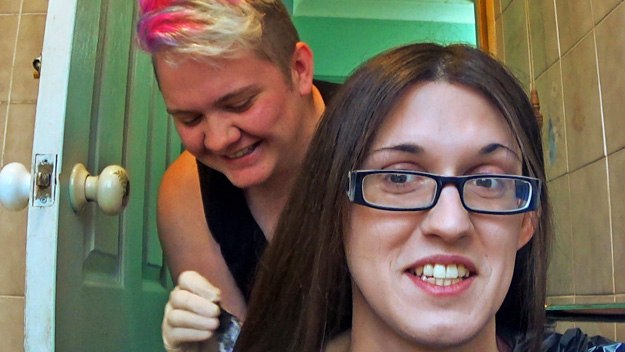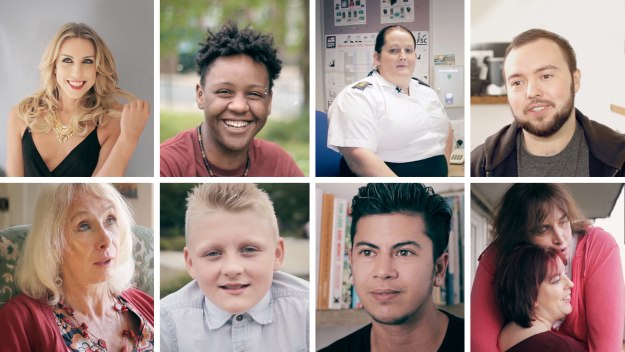
Coming out as Transgender to your family and friends
One of the toughest phases in people’s transgender journey can be the moment they decide to come out to family and friends. Some people delay this for as long as they can, whilst others may choose to come out as early as possible. There is no right or wrong answer – it comes down to what feels right for you as an individual, much the same as other big life choices such as when to lose your virginity, when to get married or when to start a family.
In our featured short from the My Trans Story series, trans filmmaker Lewis Hancox interviews his family members to find out how they really felt about his transition. Want to hear more experiences from people who have transitioned? Check out the whole series over on All 4.
Poll
Would you be surprised if a loved one came out as trans?
Better Out than In
Whilst we can’t promise to make coming out a stress-free experience, the following tips should help you to get off on a good foot…
Choose your moment
Whether a person’s reaction ends up being good or bad can come down to something as simple as choosing the right moment. Consider how the people you’re coming out to have responded to big announcements in the past. Do they stay calm in a crisis or are they prone to flying off the handle? These can be good indicators of what sort of response you might get and should allow you to prepare yourself before you drop the trans bombshell. Wait for the calmest time you can find and, if telling them in person is going to be asking for trouble, think about whether it might be better to break the news in an email or letter that allows them more time to adjust. Consider who you want to be there when you make your announcement - having others around when you come out can make the situation better or worse depending on who they are.
Don’t pick a fight
When you’re making such a huge announcement there’s always a chance that emotions will run high and things might be said in the heat of the moment (by both sides) that everyone comes to regret. It’s really important to remain calm and try not to take things too personally. Try and be reasonable and allow space and time for things to sink in. Your gender identity may have been a cost-iron fact to you for years but, for the person you’re coming out to, this may be a total bolt from the blue. The shock of the situation might lead them to say something rash but try not to judge them on their initial reaction. On the other hand, they may already suspect the truth and the whole process might be much easier than you were expecting. It might be worth asking them if they think they know what you’re going to say first.
Make sure you have someone to turn to
If the worst happens and the response is not what you hoped for, you’re going to need someone or somewhere you can turn to. Try and find one person who you know will be supportive and tell them first. It may be someone very close to you or could be someone you’re less close with. This will give you a chance to practice what you want to say and anticipate what might be said back. Talk to a support organisation if you like – sometimes it can be easier to talk to a stranger first. It can be useful to hear other people’s experiences of coming out, so explore other people’s stories on YouTube or blogs. There are also dedicated sites like http://www.rucomingout.com/
Don’t feel you have to tell everybody
Who you decide to tell is your business and nobody else’s. If you want to tell a wide group of people then go for it, but if you want to keep it just to close family and friends that’s absolutely fine. Whilst you should always try to be sensitive to other people’s feelings and sensibilities, it is OK to be selfish and only tell those you feel most comfortable with. You are in control of this decision.
Next steps
You may have already spoken to a doctor or medical professional before you decide to come out but if not it’s important to start a conversation with them as soon as possible if you want to take further steps on your transgender journey. In the UK transgender treatments and surgery are available on the NHS but there are waiting times and regional variations so it’s best to start this process as early as you can. Don’t feel disheartened if the wait for referrals and treatments are longer than you expect – you’ll still be making positive progress to something that will change your life.
Everybody out!
Thinking about coming out or just want to learn a bit more about gender and sexual identity? We’ve got loads of links that should help.




